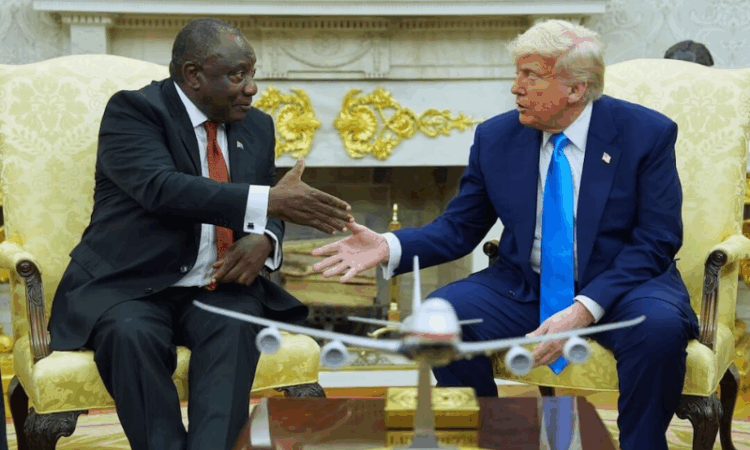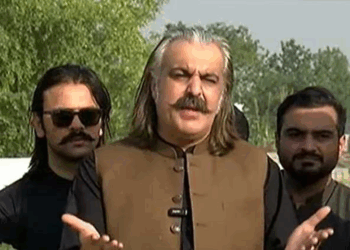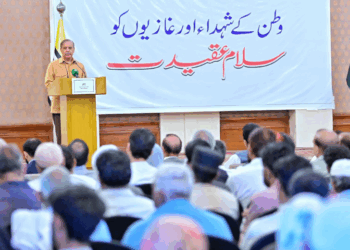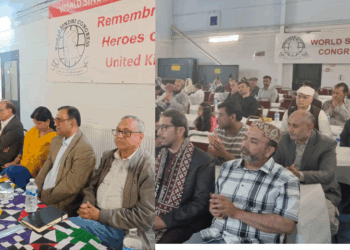Washington, May 22, 2025: U.S. President Donald Trump has claimed credit for helping de-escalate the recent tensions between Pakistan and India, while announcing that Washington is working on “big deals” with both South Asian neighbors.
Speaking at a press conference alongside South African President Cyril Ramaphosa, Trump said, “If you take a look at what we just did with Pakistan and India, we settled that whole thing, and I think I settled it through trade.”
“We’re doing a big deal with India. We’re doing a big deal with Pakistan,” he added, without providing specific details about the nature of the agreements.
Trump’s comments come at a time when the United States is both Pakistan’s largest export destination and a central player in recent geopolitical developments in the region. In 2024, Pakistan exported over $5 billion worth of goods to the U.S., while importing around $2.1 billion.
However, Trump’s aggressive trade policy continues to complicate bilateral relations. In April, he launched a new round of global tariffs, including a 29% reciprocal tariff on Pakistani goods, which was temporarily suspended until July 2025.
In response, Pakistan’s Finance Minister Muhammad Aurangzeb told Bloomberg last month that Islamabad is eager to expand trade with the U.S. and eliminate non-tariff barriers in order to shield itself from escalating trade penalties.
Turning to regional peace efforts, Trump said he played a direct role in de-escalating the latest conflict between Pakistan and India. “Somebody had to be the last one to shoot. The shooting was getting worse and worse, deeper into the countries. We spoke to them, and I think you know we got it settled,” he said. “And then two days later, something happens, and they say it’s Trump’s fault.”
Relations between the two nuclear-armed neighbors deteriorated following a deadly attack in Indian Illegally Occupied Jammu and Kashmir (IIOJK) last month. India blamed the incident on Pakistan, which strongly denied any involvement.
Subsequently, India launched airstrikes on what it called “terrorist camps” in Pakistan, prompting a fierce military response. A ceasefire was later agreed upon, which has largely held, with behind-the-scenes diplomacy reportedly involving Washington.
While the details of the trade deals remain unclear, Trump’s remarks suggest the U.S. is pursuing a dual-track strategy: economic engagement with both countries, while also positioning itself as a mediator in South Asia’s longstanding tensions.
The statements are likely to spark reactions from both Islamabad and New Delhi, especially as U.S. economic and diplomatic influence continues to shape regional dynamics.








